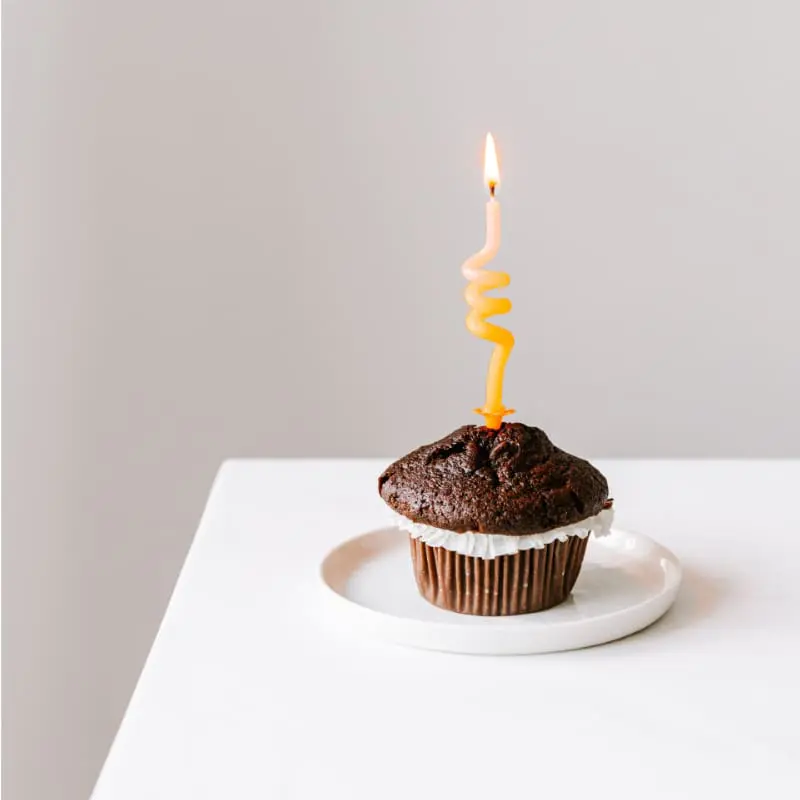This time last year, I was supposed to be in Frankfurt. It was my birthday, and also closing night of Barrie Kosky’s new production of Salome, starring my friend the excellent Canadian soprano, Ambur Braid. As an incredible birthday present, my husband had gotten me the trip: flight, hotel, tickets to the show (great seats, really). And as a not-insignificant bonus, I’d make the trip solo; I split my time between a few freelance gigs and staying at home with our toddler, so the chance for a few days booting around Germany, seeing friends and going to great shows, sans child, was a no-brainer.
I would have flown out on April 10, and obviously, the trip didn’t happen. And if you’d told me back in April 2020 that I would spend two birthdays amid a pandemic, I probably would have flipped. Panicked, freaked out, raged. Because it wouldn’t even be mid-pandemic, as in, I hear on the news that there’s a pandemic somewhere in the world; that must be rough for those people. It’s mid-pandemic, as in, at this time last year we were being told to stay inside, only go out for essentials, don’t hang out with people. It’s mid-pandemic, as in, we still feel no closer than we were a year ago to gathering in a performance venue to see a live show.
It’s my job to stare this stuff in the face, to look closely at the fallout of cancelled shows, the ugliness of unpaid artists, the big picture of what it means to deprioritize the arts.
Maybe it’s the birthday thing, the marking of 365+ days of quarantine life, that has me feeling a fresh sense of exhaustion. More likely, it’s the weird vantage point I’ve had throughout all of this:
On the one hand, I’m a person who needs to find some peace amid all of this. I get down about how my son doesn’t get to socialize with other kids, about how I no longer have a designated time or place for me to get work done, about how impossible it seems to maintain connections with even my closest friends. So, I try and shut off my phone, go outside, move my body, hang out on the floor with my kid, generally lower my standards for happiness. It works pretty well, considering.
But on the other hand, I’m a person who misses the performing arts, who’s lost a bit of identity in being absent from my community. I have friends and colleagues who are performers and who are suffering hugely, shouldering financial loss and uncertainty and becoming understandably unmotivated. I write about the arts, make podcasts, represent artists. It’s my job to stare this stuff in the face, to look closely at the fallout of cancelled shows, the ugliness of unpaid artists, the big picture of what it means to deprioritize the arts. This part of me can’t look away, even though the other part is in serious need of disconnection, a break, something…else.
Big picture, it still feels low-priority.
Early on in 2020, I was afraid of the idea of a prolonged state of emergency, where society was too preoccupied with the essential – hospitals, economies, keeping food and supplies available to the public – to realistically consider the arts and opera. I’m a believer that the arts are crucial to a life worth living, but I can’t in good faith prioritize it above an at-risk healthcare system. I feared for the arts, for their realistic place in the Pandemic To-Do List; how long do we have to wait for society to stabilize before anyone will realize that the arts are important, and in need of help?
Now, in 2021, I worry about opera apathy. Big picture, it still feels low-priority. The opera world alone has done truly extraordinary things without any of its usual tools – a live audience, for one – and there’s something breathtaking about all the art that we’ve had in the last twelve months, even while all the world’s frontline problems remain unfixed. Like ivy on an abandoned building, or maybe like that violinist on the Titanic. So maybe it’s a weird form of self-preservation, to adapt more and more to a life without live shows; adapting seems the saner option, compared with staying sad and frustrated about my lack of opera. It’s bizarre for me to consider a hard stop of something I did multiple times a week, but if I’m entirely honest with myself, I’ll admit that I’m fine. I’m not suffering from that romantic, amorphous emptiness that all artsy people imagine when confronted with the idea of a world without music, theatre, ballet. Life is alright, if lacking some of its old beauty.
Will our human need to gather still extend to the most fragile of performing arts sectors?
It’s that non-statement that gets me: If I’m alright without live performances, I’m not the same person as I was before all of this. I’m pretty different, actually, and I didn’t really notice it happen. So if I, arguably hardcore about my opera loving, can adapt without too much chaos, I imagine others can do the same, just more easily. After a year of having our arts fix limited to the screen, what fresh chore will it be for arts organizations to lure people away from their homes for live shows?
I remember Alexander Neef musing on this topic when I interviewed him in March 2020; he worried that people would forget about the power of live opera, and grow comfortable without it. I wonder, too: Will we remember why we go to concerts, why acoustic singing is irreplaceable? Will the fear that led to apathy, now lead to amnesia? Will our human need to gather still extend to the most fragile of performing arts sectors? For how many has the curtain fallen? And is 365 days the amount of time it takes an operagoer to become opera-apathetic?











